Article by Gansen Pappiah, SMSF Audit Client Liaison Manager, National Audits Group. Published by ForAccountants.com.
The restructured APES 110 Code of Ethics for Professional Accountants (including Independence Standards) came into effect on 1 January 2020. In May 2020, the Independence Guide was issued by Accounting Professional & Ethical Standards Board Limited, Chartered Accountants Australia and New Zealand, CPA Australia, and the Institute of Public Accountants.
The guide has a specific chapter on Self-Managed Superannuation Funds (SMSF’s) and applies the principles in the code when accounting and bookkeeping services are provided to an audit client.
Specifically, accounting and bookkeeper services cannot be provided by SMSF audit firms unless they are routine or of a mechanical nature. Also, any self-review threats must be reduced to an acceptable level.
Most trustees of SMSFs do not have the ability to prepare financial statements. At best, they may provide coded transactions and final balances for review prior to audit. Independence of accounting and audit functions is essential to ensure that both functions are performed appropriately. However, the distinction between mechanical and advisory elements of accounting work can sometimes be difficult to resolve.
The APES 110 Code outlines examples of ‘routine or mechanical’ nature of accounting and bookkeeping services. These include:
- Preparing payroll calculations or reports based on client-originated data for approval and payment by the client.
- Recording recurring transactions for which amounts are easily determinable from source documents or originating data, such as a utility bill where the client has determined or approved the appropriate account classification.
- Calculating depreciation on fixed assets when the client determines the accounting policy and estimates of useful life and residual values.
- Posting transactions coded by the client to the general ledger.
- Posting client-approved entries to the trial balance.
- Preparing Financial Statements based on information in the client-approved trial balance and preparing related notes based on client-approved records.
For smaller firms unable to specialise in SMSF audits, there are real challenges in providing these services in a truly independent manner. For network firms, there are also challenges that must be assessed within a formal risk management framework. Chinese walls may not always provide the protection that firms or their clients require.
Note: APES 110 now defines a network firm as a firm belonging to a larger structure that is aimed at cooperation and is clearly aimed at profit or cost-sharing or shares common ownership, control or management, common quality control policies and procedures, common business strategy, the use of a common brand-name, or a significant part of professional resources.
The ATO is now monitoring SMSF audit firms to ensure compliance with APES 110
There is now a pressing requirement for auditors to re-evaluate whether they can continue providing accounting and bookkeeping services, and then undertake the audit of financial statements.
In June 2020, the ATO announced it would be writing to SMSF audit firms that prepare both the financial statements and audits for SMSFs to ensure they are complying with the requirements under the new APES 110 Code.
The ATO said there are changes to the guide that SMSF auditors must familiarise themselves with, in chapter 8. “In particular, as a result of the restructured code, the guide now makes it clear that an SMSF auditor cannot audit an SMSF where the auditor, their staff or their firm, has prepared the financial statements for the SMSF unless it is a routine or mechanical service.”
What should audit firms do to address these changes?
A special GAAP report (July 2020) outlined 7 key actions that SMSF audit firms should consider to ensure that they meet the new independence requirements:
- Appoint a responsible person to champion overseeing the changes and continued compliance
- Engage with other stakeholders within the firm regarding the changes, the risks faced, and identify the changes that will be necessary to systems, processes, templates, and client engagements
- Document existing SMSF relationships (such as those with administrators, other accounting/auditing firms, and non-standard SMSF audits) and procedures for compliance with revised requirements
- Reconsider the appropriateness of existing processes, and tailor safeguards to the firm’s overall approach to accounting/ bookkeeping and audit services to SMSFs, also tailoring them for specific clients’ circumstances (where appropriate)
- Update engagement letters for providing accounting/bookkeeping and audit services to reflect revised requirements
- Organise training for SMSF audit teams, and
- Consider independent quality assurance of revised policies, procedures, and templates.
What is National Audits Group doing to address independence with SMSF audits?
National Audits Group has carefully reviewed the new requirements concerning preparing the financial statements of firms where SMSF audits are being performed. Key operating principles of the NAG include:
- Providing audit services only, it does not provide accounting or tax services.
- Offering a dedicated team of specialists working solely on SMSF audits independent of other services provided
- Not operating as part of a larger network, nor a formal affiliation with a network group.
In 2019, the ATO conducted a compliance review of 51 top 100 audit firms.
- 2 firms were referred to ASIC due to failure to identify contraventions
- 5 firms were identified as having exited audit services (voluntary cancellations)
- Minor deficiencies were identified in 35 firms, including insufficient audit documentation and/or engagement letters not referencing specific SISA sections and SISR regulations, not signed or not updated
Just 10 firms were fully compliant. National Audits Group was one of these 10 firms.
If you would like to discuss the implications of the new APES 110 standards on your accounting or audit firm, contact the team at National Audits Group.


